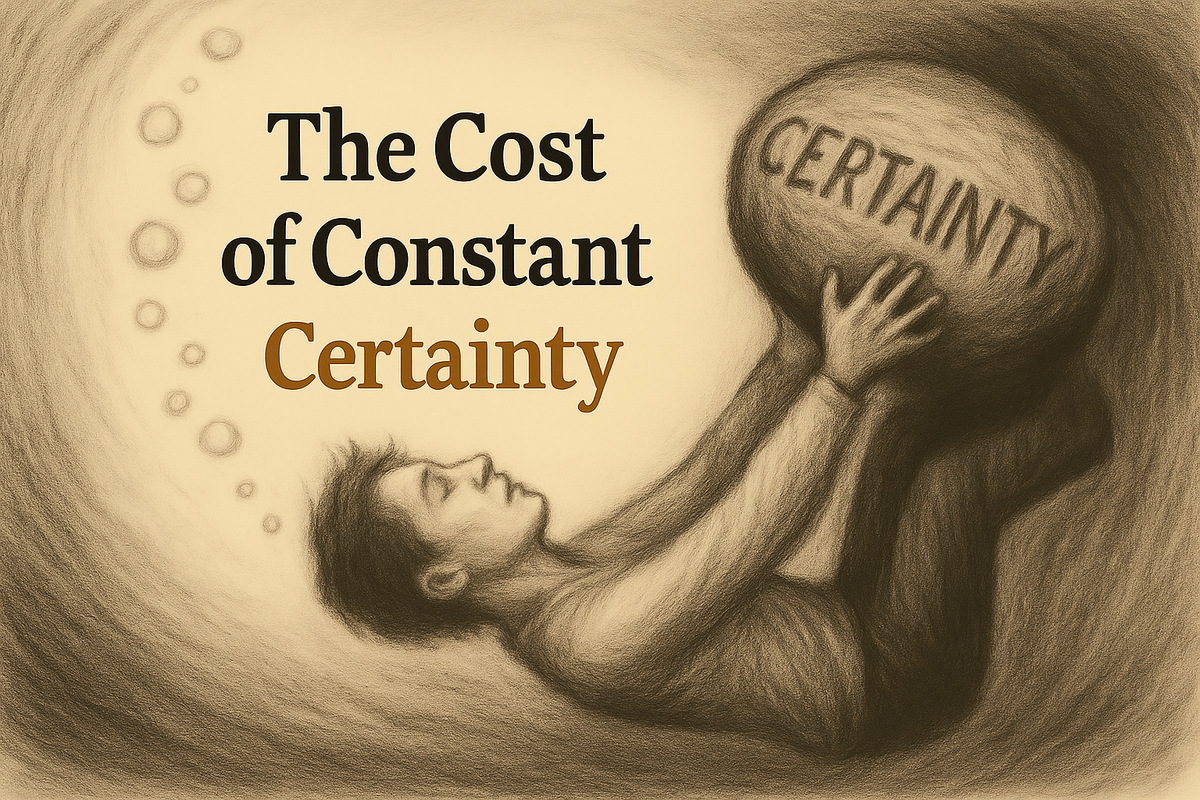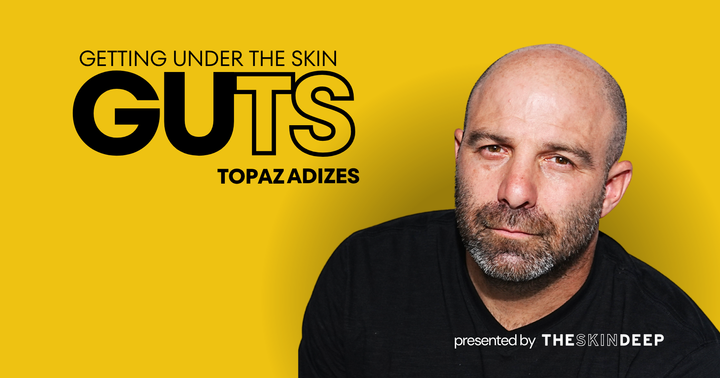The Cost of Constant Certainty
Maybe the real work right now isn’t to know more. Maybe it’s to tolerate not knowing. To resist the pressure to conclude. To ask better questions before forming firmer stances. To leave space between stimulus and response. To practice holding contradictions without rushing to collapse them into one.

We are living in an age of real-time conclusions.
There’s no time for maybe. No patience for process. No room for “I don’t know.”
Scroll through any feed, and you’ll see people speaking not just confidently but absolutely. Confidently about war. Confidently about politics. Confidently about who’s to blame. And who’s beyond repair.
The incentive is clear: Certainty performs better than curiosity. Outrage spreads faster than reflection. The algorithm doesn’t reward “it’s complicated.”
But we were not designed for certainty. We were designed for discovery.
Certainty flattens things. It makes others one-dimensional. It turns disagreement into moral failing. And it makes the world easier to label, but harder to love.
And yet if you are not loudly certain, you are invisible. Or worse, irrelevant.
So we all get better at having an opinion before we’ve asked a question. We sharpen our arguments instead of our listening. We feel the pressure to speak before we’ve really thought. To post before we’ve really felt.
But I wonder what all this premature knowing is costing us.
Because there is a kind of wisdom that doesn’t shout. It lives in the pause. The hesitation. The willingness to sit in the in-between long enough to see more clearly.
And there’s a kind of intimacy that only comes when we admit we don’t have the answers yet, but are still willing to stay in the room together.
I should admit something here that even this post risks becoming another certainty. Another platitude. Another tidy truth packaged for consumption. I can feel the tension as I write it. To speak with conviction is to risk sounding absolute. To name the problem of certainty is to enact it.
But maybe that’s the point. That awareness is part of the work. To notice when we’re tempted by clarity. To hold the contradiction of needing language while knowing language reduces.
Because life itself is contradictory. You can love and resent. You can believe and doubt. You can feel both hope and despair in the same breath. And collapsing one side to preserve certainty erases the truth of the other.
So maybe the real work right now isn’t to know more.
Maybe it’s to tolerate not knowing. To resist the pressure to conclude. To ask better questions before forming firmer stances. To leave space between stimulus and response. To practice holding contradictions without rushing to collapse them into one.
Because when we rush to certainty, we lose more than perspective.
We lose the thread that binds us together.
So the question isn’t: “How do I become more confident in what I know?”
The question is: “How do I become more honest about what I don’t?”


Comments ()